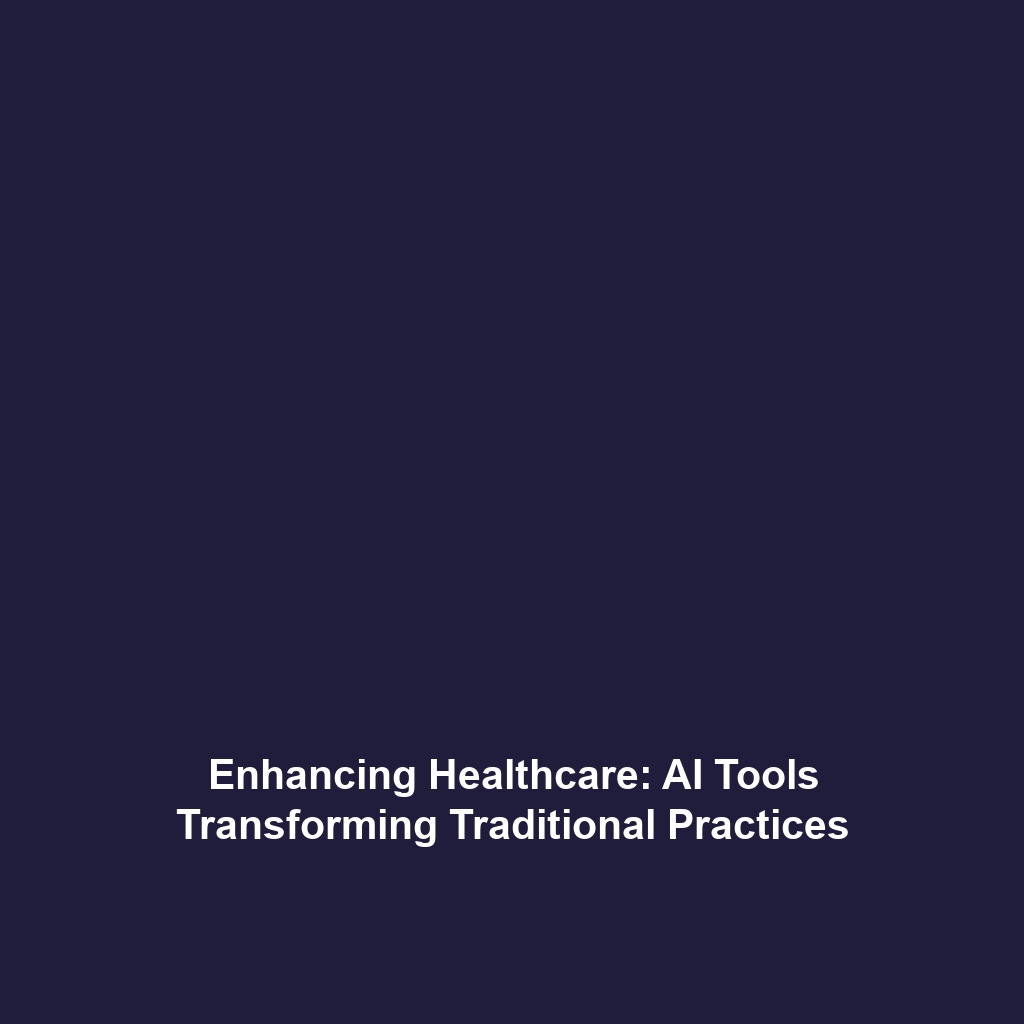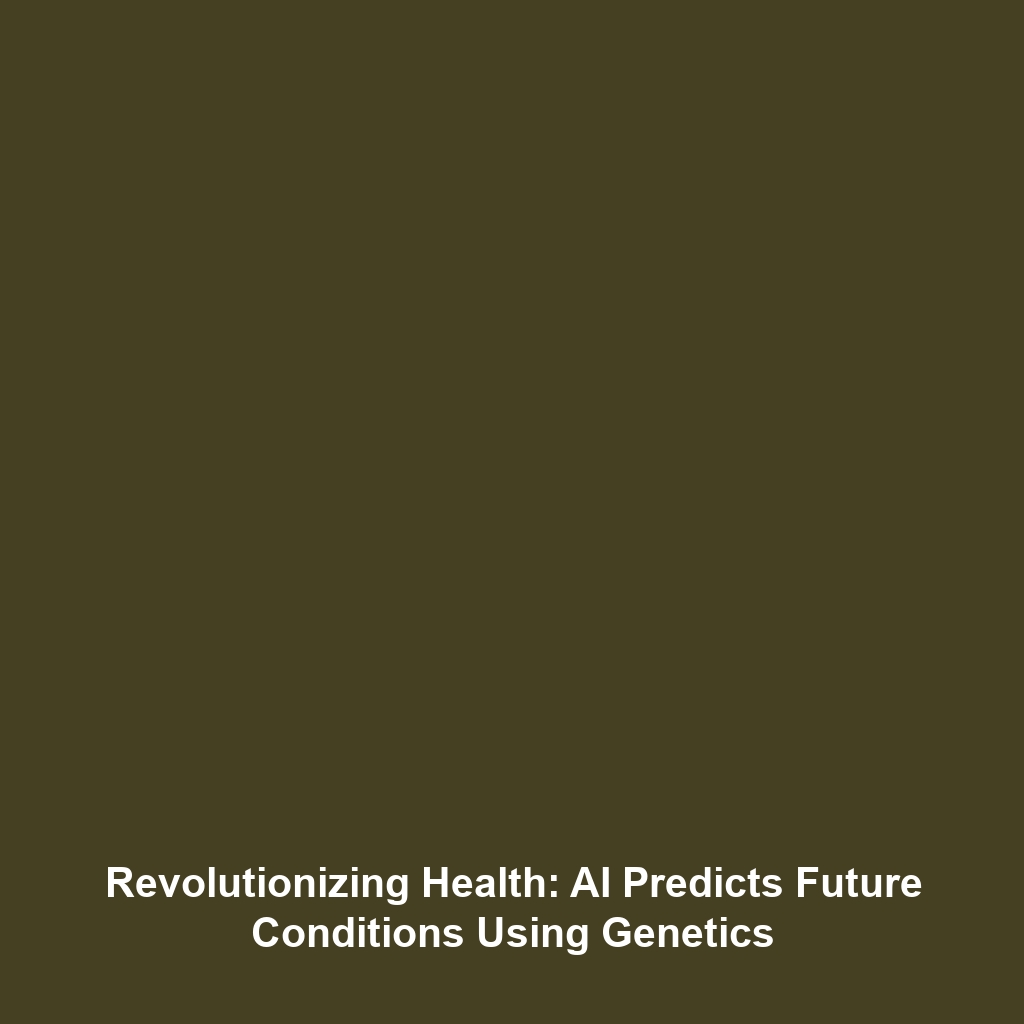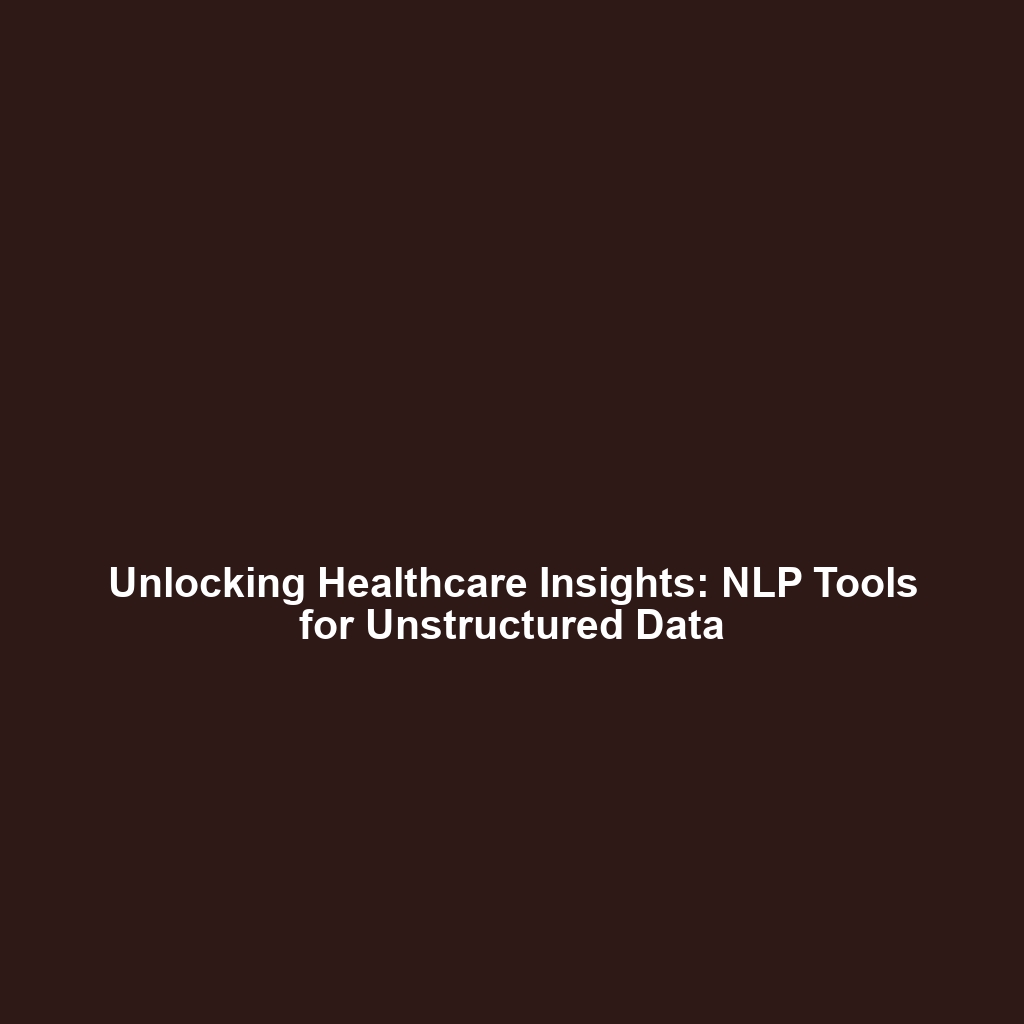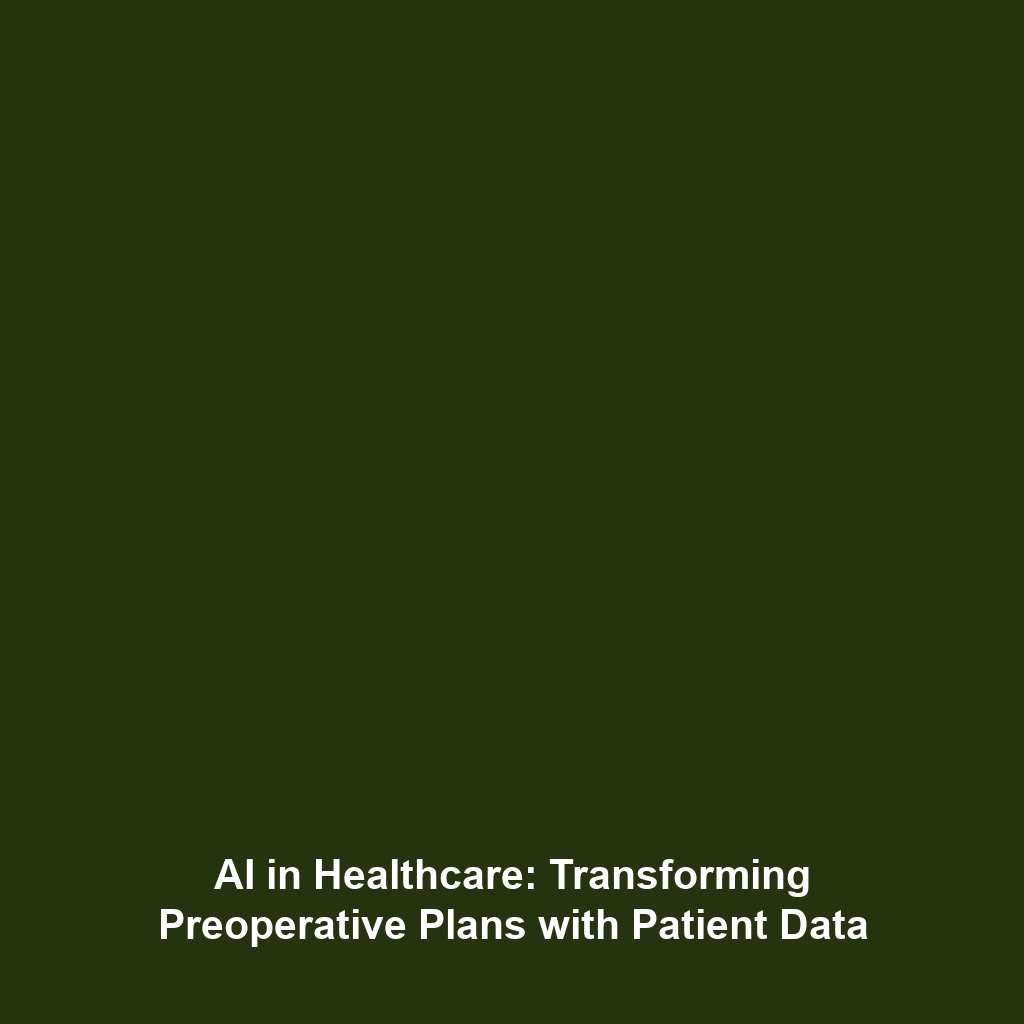How AI Will Support Clinicians in Making More Accurate and Timely Decisions
Introduction
Artificial Intelligence (AI) is revolutionizing the field of healthcare, specifically in aiding clinicians to make more accurate and timely decisions. This groundbreaking technology holds the potential to enhance diagnostic accuracy, improve patient outcomes, and streamline clinical workflows. As we delve into how AI supports clinicians, it is essential to understand its significance within the broader context of AI in healthcare. The integration of robust AI solutions enables providers to leverage vast amounts of medical data, thereby improving decision-making processes and ultimately enhancing patient care.
Key Concepts
Understanding the principles behind how AI supports clinicians involves several key concepts:
Data Analysis and Machine Learning
AI systems utilize advanced algorithms and machine learning techniques to analyze complex datasets. This capability is crucial in identifying patterns and predicting outcomes, giving clinicians valuable insights.
Clinical Decision Support Systems (CDSS)
CDSS powered by AI can assist healthcare providers by offering evidence-based recommendations, risk assessments, and treatment guiding protocols that improve the quality of patient care.
Natural Language Processing (NLP)
NLP tools enhance the interaction between clinicians and AI by processing unstructured data from electronic health records (EHRs), enabling more comprehensive patient information analysis.
Applications and Real-World Uses
The applications of AI in supporting clinicians are increasingly significant in today’s healthcare landscape. Some key examples include:
- Diagnostic Imaging: AI algorithms process images from MRIs and CT scans, helping radiologists detect anomalies with improved accuracy.
- Predictive Analytics: AI tools analyze historical patient data to predict potential health risks, allowing clinicians to intervene preemptively.
- Telemedicine: AI-enhanced telemedicine platforms assist clinicians in providing remote consultations, particularly useful in managing chronic conditions or during pandemics.
Current Challenges
While the potential of AI in supporting clinical decision-making is immense, there are notable challenges:
- Data Privacy: Ensuring patient data protection remains a critical concern as AI systems require vast amounts of data.
- Integration with Existing Systems: Many healthcare facilities face difficulties in integrating AI tools with legacy systems, which can impede their effectiveness.
- Clinical Adoption: There is resistance among some clinicians to adopting AI solutions, often due to a lack of understanding or fear of change.
Future Research and Innovations
The future of AI in supporting clinicians is promising, with ongoing innovations that could reshape healthcare practices:
- Enhanced Personalization: Future AI systems aim to offer tailored treatment plans by analyzing individual patient data over time.
- Robust AI Training: Ensuring AI models are trained on diverse datasets will help in minimizing bias and improving reliability across various populations.
- Integration with Wearable Technology: Upcoming AI applications will capitalize on data from wearables, providing real-time health monitoring and support for clinical decisions.
Conclusion
In summary, the integration of AI technology is set to significantly support clinicians in making more accurate and timely decisions. The potential benefits are vast, from improved diagnostic accuracy to enhanced patient care. As we face challenges in data privacy, system integration, and clinician adoption, ongoing research and innovation will be vital for the successful implementation of AI in healthcare. For continued exploration of this topic, consider reading our articles on AI trends in healthcare and the future of digital health.



